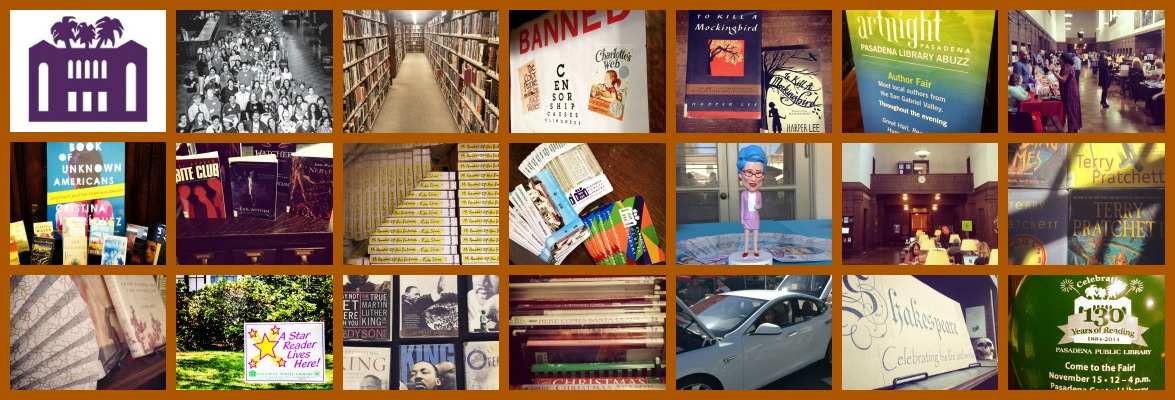It’s 2024, a new beginning, and it seems like everyone wants to know what your New Year resolution is. Ah, you almost feel the pressure to come up with something big and ambitious. Your friends and even friends of your friends on social media are talking about doing something grand or going all out on a new interest or activity. Maybe they said something about skydiving or scuba diving, running a marathon or climbing Mt. Shasta, perhaps it was learning how to cook like a 3-star Michelin chef or play an instrument, or maybe it was going out more and meeting new people or spending more time alone and meditating, or it might have been something about working on oneself and becoming a better you—all these are great but there’s one resolution that no one really brings up and which I think is just as exciting as it’s simple, and that’s to read a new book!
As someone who works in a library, I guess it’s not a huge surprise I’d say something like that! Really, my New Year resolution is simply to read more, and not just any books but new books that might expand my imagination and knowledge. And the best thing about it is that it doesn’t cost me a cent because there’s the public library! I think it’s a resolution I can share with the world without sounding a bit pretentious; and I think it’s one I can easily keep and all my other lofty goals for the year will just fall into place.
If one of your goals for 2024 is to read more books as well, then here are nine recently published books that are worth a read for this new year!
Also check out our e-book platforms Libby, Cloud Library, hoopla, and Palace Project for digital formats of these titles.
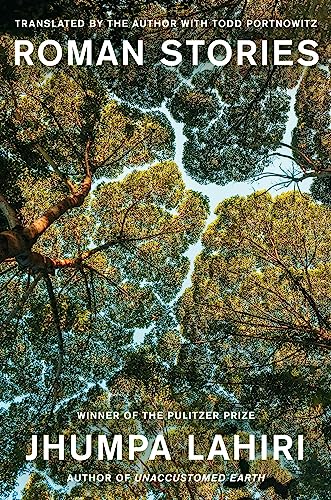 Roman Stories by Jhumpa Lahiri
Roman Stories by Jhumpa Lahiri
I’ve always liked Lahiri’s short stories, beginning with Interpreter of Maladies, which is a collection of nine stories with a unifying theme of navigating between two cultures and two worlds. Roman Stories not only continues with this theme but is a return to fiction that powerfully conveys cultural and geographical transitions for which Lahiri is best known. The stories take place in Rome, Italy, where she lived for a number of years. It’s this experience of living in a land that’s not one’s birthplace that allows Lahiri to write these stories with a degree of authenticity. They are about refugees and immigrants, expatriates, as well as native Romans who despite their origin feel a sense of foreignness. Their narratives are not particularly sad but rather reflective, asking us who are we, and why are we here.
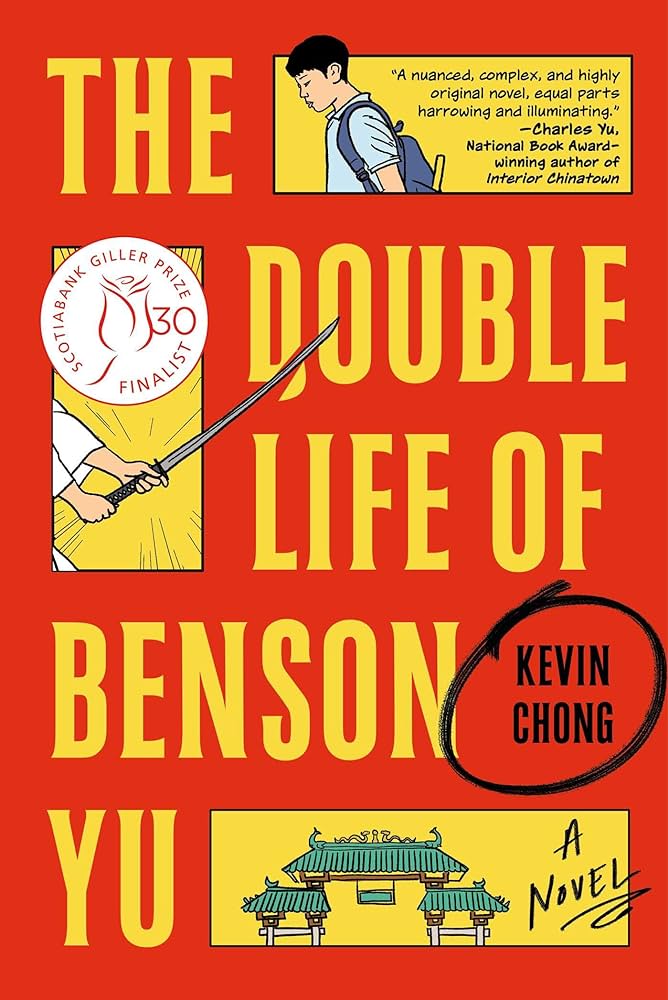 The Double Life of Benson Yu by Kevin Chong
The Double Life of Benson Yu by Kevin Chong
I came across this book while browsing the “New Books” section and thought it looked interesting. I usually don’t go out of my way to read new fiction, but something about this book being a metafiction intrigued me. For those who aren’t too familiar with this form of fiction, The Double Life of Benson Yu can be hard to comprehend at first but once you get an idea of how the narrative is constructed the reading is more fluid. It’s about an author named Benson Yu who’s writing about a fictional version of his younger self growing up in Chinatown during the 1980s. Benny, the character in the story, lives with his ailing grandmother, but when she dies he is forced to survive on his own until he is taken in by his strange neighbor Constantine, who believes he’s a reincarnation of a medieval samurai. The unlikely bond between the two becomes central to Yu’s story, which subconsciously serves as a catharsis for the author in dealing with childhood trauma.
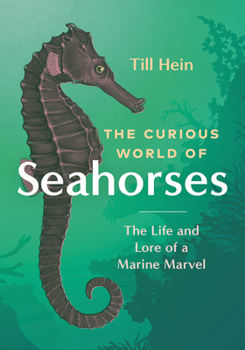 The Curious World of Seahorses: The Life and Lore of a Marine Marvel by Till Hein
The Curious World of Seahorses: The Life and Lore of a Marine Marvel by Till Hein
The “New Books” section is always a fun place to look when inside a library because you’re bound to find something interesting that you weren’t really looking for—case in point is this book. Seahorses are creatures that I rarely think about. I mean I can’t remember the last time they popped up in my head and made me wonder about their biology, their place in the marine ecosystem, or their cosmic significance in my life. However, when I came across this book, I wondered what new or insane discovery has been made about seahorses that there is a new book dedicated solely for talking about them. Did you know that seahorses are fish—of course they are!—but are terrible swimmers? They have a prehensile tail that can grab on to seaweed, so they have that going for them. Also, they don’t have a stomach and so must eat a lot due to their unique digestive tract. Seahorses don’t have very many natural predators, but humans do pose a significant threat to them, as they’re often eaten or used for medicinal purposes in some parts of the world. Hein isn’t a marine biologist, but he knows a thing or two about fish. This book is both entertaining and informative and will make you reconsider the odd and humble seahorse. It’s a creature that is truly fascinating!
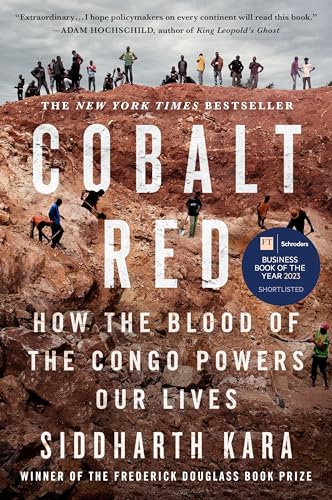 Cobalt Red: How the Blood of the Congo Powers our Lives by Siddharth Kara
Cobalt Red: How the Blood of the Congo Powers our Lives by Siddharth Kara
We depend on our smartphones, Bluetooth devices, laptops, tablets, and many other portable electronic devices on a daily basis. These things use batteries. And when you also factor in the popularity of electric vehicles and the huge battery they use, you realize that batteries have become indispensable in our lives. This book is about one of the key ingredients of lithium-ion rechargeable batteries that power many of the things we use every day. It’s an exposé of the mining industry and its practices and the environmental and human toll of extracting this precious metal from the earth. Much of it comes from the Democratic Republic of the Congo, where a lot of the mining takes place using child labor. Kara speaks with the people who work in the dangerous mines, and his book serves as their testimony, which may make us consider the much higher price we pay the next time we use our smartphone or get into our electric car.
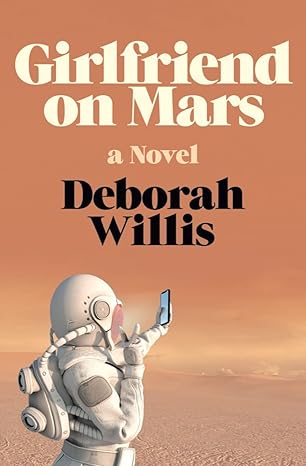 Girlfriend on Mars by Deborah Willis
Girlfriend on Mars by Deborah Willis
If you want to start the new year with a lighthearted read, then this novel might be a good choice. It’s funny and about relationships, though I wouldn’t call this a romantic comedy. Amber Kivinen wants some space from her boyfriend of fourteen years, so she enters a contest called MarsNow for a chance to actually go into space. Mars is the destination and she’s hoping to get a seat on the spaceship headed for the red planet and leave earth for good. Kevin, her boyfriend, sees her on tv and notices that she’s falling in love for a contestant named Adam and wonders if she’s flirting with him so that she doesn’t get voted out of the game show, which in essence is a reality tv show. Will she win and leave him for good? The book takes a jab at reality entertainment, online influencers, corporate greed, and perhaps the ridiculous idea of going to Mars. I really think it had the potential to explore more of the philosophical regarding reality and the question of what’s real and what’s not as first asked by thinkers such as Parmenides and Plato. It doesn’t. Then again, why start the new year with such deep existential thoughts?
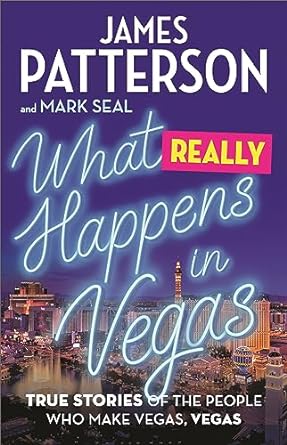 What Really Happens in Vegas: True Stories of the People Who Make Vegas, Vegas by James Patterson
What Really Happens in Vegas: True Stories of the People Who Make Vegas, Vegas by James Patterson
Las Vegas is a place that doesn’t interest me much, if at all, but I checked out this book because of the title, and I was pleasantly surprised by how much I enjoyed it. I like reading stories about places told by ordinary people whose personal experience and unique perspective can make a place more fascinating than it really is. Patterson visits different places and speaks with a variety of people who work or live in Vegas or who are visiting Vegas and weave their stories to create a cohesive narrative about a city that is far more fascinating than the glitz, glamor, and gambling that it’s known for. Each chapter is a vignette of Vegas history or life as experienced by locals and visitors who share with Patterson the Vegas that people really don’t hear about. The book opens with a scene that could have been taken from a section of a dystopian science fiction story, but it turns out that Patterson is talking about the subterranean plumbing of the Bellagio fountains. It’s amazing how complicated and well-engineered they are. There are some far-fetched stories in there like the high roller who was hooked up to an oxygen tank so that he could play for seventy-two hours straight! Whether you like Vegas or not, this is an interesting book that offers a behind-the-scene look of Vegas that is rarely seen.
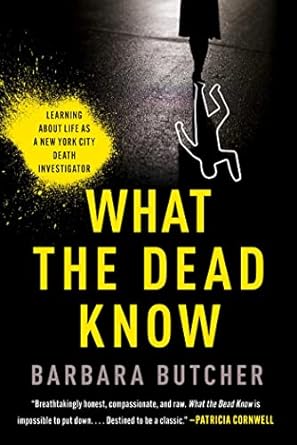 What the Dead Know: Learning About Life as a New York Death Investigator by Barbara Butcher
What the Dead Know: Learning About Life as a New York Death Investigator by Barbara Butcher
Anything that deals with medical examiners, death investigators, and forensic science in general is usually good reading for me. This book doesn’t disappoint if you have a morbid curiosity about the dead, death, and dying. Don’t worry, you’re normal—just like me! Butcher shares twenty years of experience as a death investigator in what might be considered a memoir. She shares a bit about her personal life and the struggles she’s had leading up to her work as a death investigator in New York City. Readers may find it inspiring, but I’m fascinated by the true-crime stories she shares. In the course of her career, she’s investigated over 5,500 death scenes and 680 homicides, so she’s seen a lot. This book covers some of the more memorable cases, from the rather tame to the utterly gruesome.
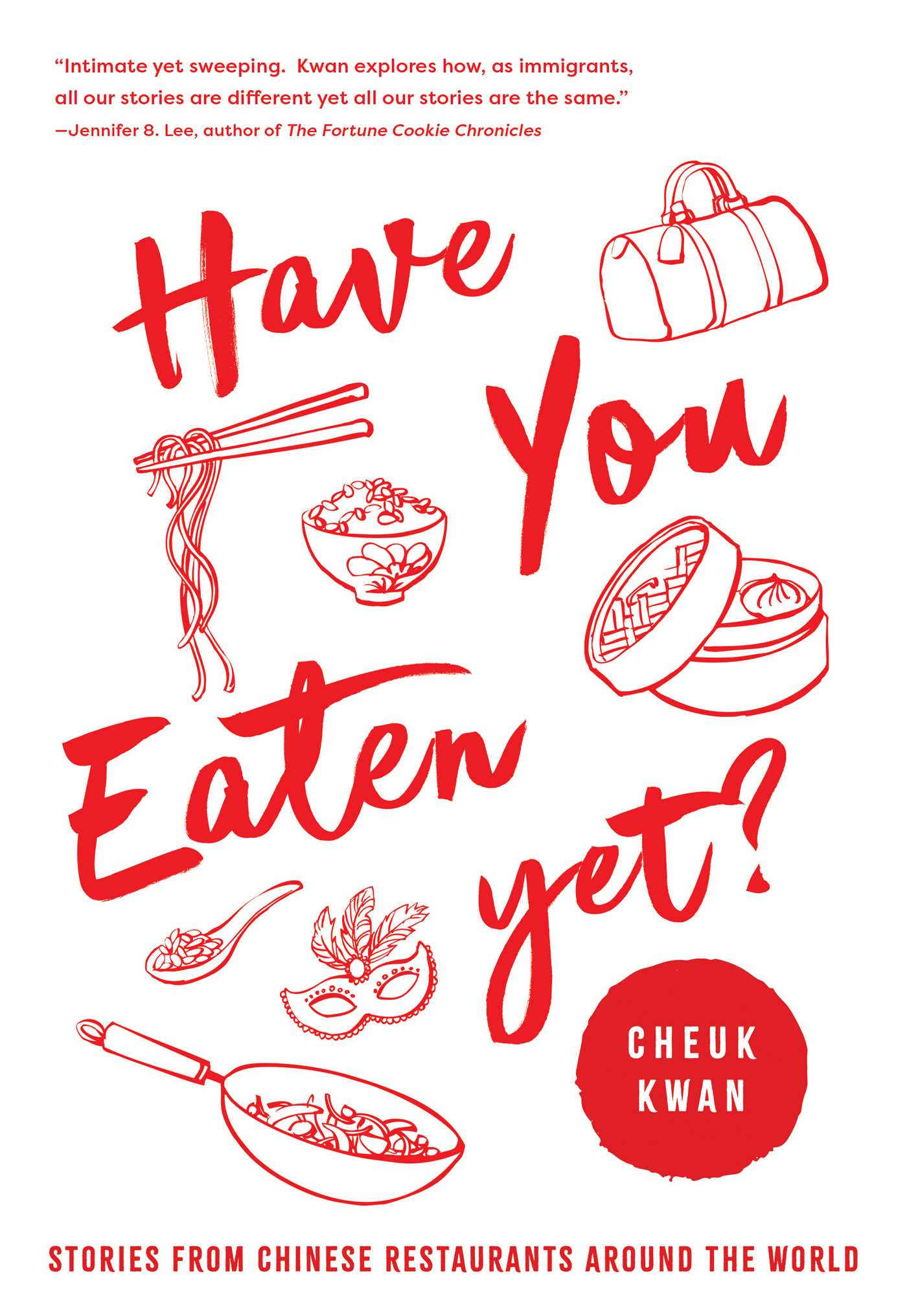 Have You Eaten Yet? Stories from Chinese Restaurants Around the World by Cheuk Kwan
Have You Eaten Yet? Stories from Chinese Restaurants Around the World by Cheuk Kwan
Nei sik jor fahn mei ah? or have you eaten yet? is a common greeting in Chinese culture. It literally translates to “have you eaten rice yet?” and is equivalent to “how are you?” in many English-speaking countries. There’s historical and cultural meaning behind this greeting, which Kwan mentions in his book. But the fact that asking someone if they’ve eaten is very indicative of a culture in which food plays a central part. Have You Eaten Yet? is about Chinese food and restaurants from around the world. It’s more than a food travelogue as Kwan also delves into the history and culture of the Chinese community that have cropped up in countries like Madagascar, Israel, and South Africa where you can find Chinese cuisine with a touch of local flavors. Against a kitchen backdrop, so to speak, Kwan discusses topics such as immigration, assimilation, racism, and cultural identity that concern the Chinese diaspora of which he claims to be a part. This a is fun read if you like food and travel and a little bit of history.
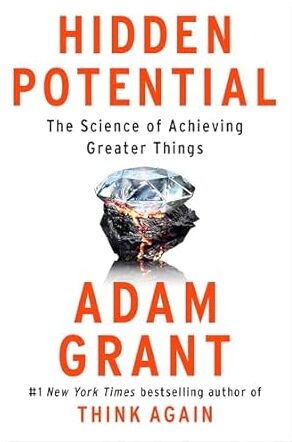 Hidden Potential: The Science of Achieving Greater Things by Adam Grant
Hidden Potential: The Science of Achieving Greater Things by Adam Grant
What will a New Year resolution reading list be without at least one book about self-improvement and being awesome? Let’s be honest, we all dream of greatness (even the humble and the most hopeless), but the sad reality is not everyone is destined for greatness. That’s rather depressing to know, but is it true? This book says that anyone can achieve great things. Grant, a psychologist, believes that we often underestimate our skills, ability, and our capacity to achieve greatness and that we can learn and become those people whom we consider great. If you feel you’re not quite getting to where you want to be despite putting in so much time and effort, he reminds us that progress is less about how hard you work and more about how well you learn. And if you don’t think you possess the genius to achieve great things, don’t worry because personal growth is not about that but rather about the character you develop in your journey to greatness. The book leans more on positive thinking, which is what we all could use jumping into 2024.
